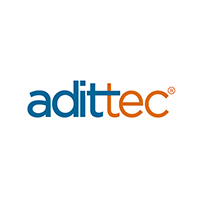Structure of a modern résumé
The way a résumé looks has been changing over the years so, since first impressions are crucial, make sure that your résumé, in addition to including key content , has a clear and modern structure and is easy to read. Modern résumés include:
Personal contact details
Do not forget to include all your important contact information, such as your mobile phone number and e-mail address, so that the employer can easily contact you. Avoid including information that is not relevant for the employer, for example your marital status and number of children.
Jobseeker profile
Your profile is a brief career summary, in which you present your unique value for the employer in four sentences at the most; what you are good at, what you enjoy doing and which skills you want to apply in the future. When choosing adjectives to describe these points, make sure they are not too general. It is better to be more specific and use facts to support this. Give your profile a punchy title that, in a few words, tells people what your professional advantage is.
Work experience
List work experience chronologically, including the name of the company, your job position title and the time frame of employment. Instead of giving a boring list of your work tasks, state what your main role at the company was and your greatest achievement that you had during your time working their. Focus on those achievements that reflect your professional expertise and are relevant to the job you are applying for. If your list of work experience is very long, focus on those that you feel are the most relevant for the employer.
If you do not have much work experience, emphasis your expertise and skills.
Education
List the title you received upon completing your education, the name of the course and the educational institution that issued it, in chronological order from newest to oldest. If you obtained a higher education (vocational college, graduate, postgraduate, etc.) you can leave out information on your secondary school education, if it is not particularly relevant to the job position. Include any education that is still on-going and which you intend complete in the near future.
You should list informal education as additional information. This includes courses, workshops, training seminars, professional conferences, etc. that are relevant to the job position that you are applying for.
Expertise, skills and personal skills
This part of the résumé is particularly important for technical professions and candidates often place it before work experience. Here, you should list your expertise, skills and technical skills that you have acquired (computer programs, programming languages and environments, specific technical skills, etc.) with an emphasis on those tools and skills in particular that are important to the employer. It is very useful to also list how long you have been working with these tools, either using a scale or explaining the level of proficiency.
Besides technical expertise and skills, it is becoming more and more important to also have language and personal skills (‘soft-skills’). When listing these, be careful not to give too general descriptions. Focus on those skills that set you apart from others and that are relevant to the job position.


